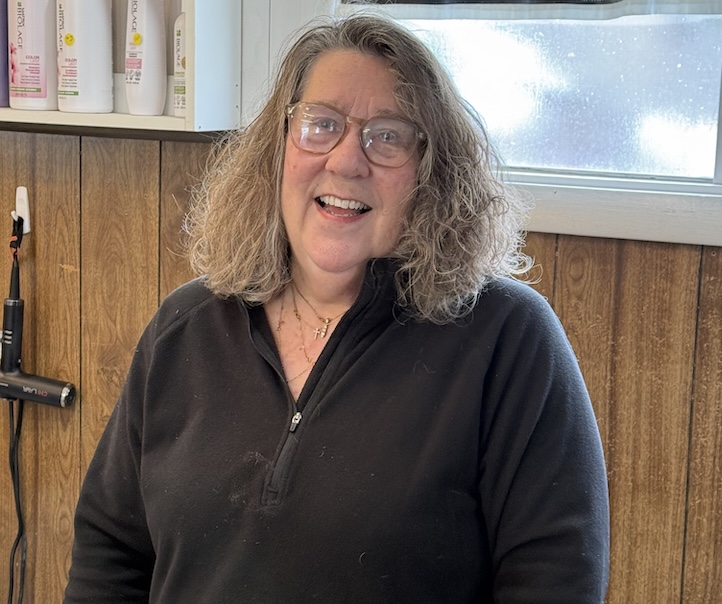TEAM PHOTO: 2025 SVAC champions
/0 Comments/in Community, Photo, School News, Sports, Vassalboro/by Website EditorRepair work taking place at Lithgow Library
/0 Comments/in Augusta, Community, News/by Website Editor
photo: Friends of Lithgow Public Library
Please note that starting March 11, there will be ongoing repair work taking place in the library’s historic wing. The first phase of work will start with the Reading Room, which will be partially closed, and then will shift to the West side where the dvds, magazines and newspapers are housed. During phase two, the magazines and newspapers will be relocated to the Reference area on the 2nd floor and some of the dvds may be unavailable.
The historic wing is the library’s designated quiet area, but during this time there will be disruption. Thank you for your patience.
Lithgow Library is located at 45 Winthrop Street, in Augusta. For more information, please call the library at (207) 626-2415 or visit our website at www.lithgowlibrary.org
Desmond Robinson receives MPA Principal’s Award
/0 Comments/in Anson, Carrabec, Community/by Website EditorDesmond Robinson, son of Daniel and Stacey Robinson, of Solon, a senior at Carrabec High School, in North Anson, has been selected to receive the 2025 Principal’s Award, according to Principal Peter Campbell. The award, sponsored by the Maine Principals’ Association, is given in recognition of a high school senior’s academic achievement, citizenship and leadership.
Mr. Robinson is a well-rounded student. He is a member of the student council and student advisory team. His contributions are always thoughtful and are well received by this peers. Desmond represents Carrabec High School in other areas as well. He is a member of the math team where his high scores at meets have propelled the math team to three consecutive league championships. He is also a member of the National Honor Society and was selected as the first student to represent his class as Student of the Month. Desmond is a three season athlete, competing at a high level in cross country, basketball and track and field.
Academically, Desmond’s performance has set him apart from his peers. Desmond has and continues to take advanced classes. The most impressive achievement is that he has already taken and passed seven AP exams. Several of which, he did not even take as a class, it was done on his own.
For all of these reasons, Mr. Campbell is proud to announce that Desmond Robinson is the Carrabec High School MPA Award recipient for 2025. Desmond will attend an awards luncheon on Saturday, April 5, 2025, where he will receive his award and be eligible to be selected for one of ten scholarships.
Augusta native serves with Navy Helicopter Strike Force
/0 Comments/in Augusta, Community/by Website Editor
Petty Officer 3rd Class Theodore Mahaleris, of Augusta, with a Navy MH-60R Sea Hawk in the background. (photo by Mass Communication Specialist Seaman Joseph Sitter, Navy Public Affairs Support Element West)
Petty Officer 3rd Class Theodore Mahaleris, a native of Augusta, serves the U.S. Navy assigned to Helicopter Maritime Strike Squadron (HSM) 35.
Mahaleris graduated from Cony High School in 2017.
The skills and values needed to succeed in the Navy are similar to those found in Augusta.
“My hometown taught me the importance of small-town ideals,” Mahaleris said. “My city inspired me to venture off to experience new cities and new adventures. After joining the Navy, I was exposed to how much more the world had to offer.”
Mahaleris joined the Navy three years ago. Today, Mahaleris serves as a naval air crewman (tactical helicopter).
“I joined the Navy because I wanted to join a challenging and fulfilling community,” Mahaleris said. “Air rescue has provided the opportunity to travel to places I couldn’t ever imagine and contribute to a unique work environment. My great uncle served in the Navy and hearing his sea stories inspired me to join.”
Members of HSM-35 fly and maintain the MH-60R Sea Hawk helicopter, the Navy’s most advanced rotary wing maritime strike platform. The Navy MH-60R is able to perform many different missions. Some of the most common operations include strikes on maritime targets, submarine hunting and attack, electronic warfare, search and rescue, medical evacuations and supply support.
The U.S. Navy is celebrating its 250th birthday this year.
According to Navy officials, “America is a maritime nation and for 250 years, America’s Warfighting Navy has sailed the globe in defense of freedom.”
With 90 percent of global commerce traveling by sea and access to the internet relying on the security of undersea fiber optic cables, Navy officials continue to emphasize the prosperity of the United States is directly linked to recruiting and retaining talented people from across the rich fabric of America.
Mahaleris has many opportunities to achieve accomplishments during military service.
“My proudest accomplishment so far is graduating from the Fleet Replacement Aircrew (FRAC) training,” Mahaleris said. “I was able to push myself through rigorous training that I originally wasn’t inclined towards. I was able to achieve success in a rewarding career field that I would have never imagined myself in. The Romeo aircrew requirement is very intensive, but the opportunity to employ your skillset on a daily basis is unparalleled.”
Mahaleris serves a Navy that operates far forward, around the world and around the clock, promoting the nation’s prosperity and security.
“For me, serving in the Navy means training to be the best,” Mahaleris said. “To get to practice my mission set on a daily basis to protect this country is an experience unlike any other.”
Mahaleris is grateful to others for helping make a Navy career possible.
“I want to thank my mom and dad,” Mahaleris added. “Maine provided the foundation for me to propel myself to where I am today. I was able to leverage my experiences to become the leader I am today.”
3rd annual Mothers-to-be Tea returns in Vassalboro
/0 Comments/in Community, Events, Vassalboro/by Eric W. Austin
Sew for a Cause volunteer Barbara Clerite-Ventura prepares for the 3rd annual Mothers-to-be Tea, on Saturday, May 3. (contributed photo)
by Eric W. Austin
The 3rd Annual Mothers-to-Be Tea is set for Saturday, May 3, 2025, from 1-3 p.m., at the St. Bridget Center, in Vassalboro. This heartwarming event, hosted by the dedicated volunteers of Sew for a Cause, aims to provide a supportive and celebratory space for expectant mothers to relax, connect, and enjoy an afternoon of tea, treats, and community.
With free admission and a welcoming atmosphere, the Mothers-to-Be Tea is designed to bring local moms together, offering resources and connections to help them navigate the journey of motherhood. Whether it’s your first child or another exciting addition to the family, this event promises a memorable and uplifting experience.
Guests will be greeted with a delightful spread of tea and light refreshments in the gorgeously restored St. Bridget Center, creating a cozy, friendly setting. But the real treat? Every attendee will receive a Welcome Baby Bundle tote bag filled with handcrafted baby essentials, lovingly made by the Sew for a Cause volunteers. Expect handmade bibs, blankets, hats, and other adorable baby items that make preparing for a new arrival just a little sweeter.
Beyond the gifts, the event will also feature raffle baskets, with prizes generously donated by local businesses and community sponsors. Additionally, experienced moms will be on hand to share valuable tips, advice, and encouragement, helping to foster a sense of connection and support among attendees.
Rachel Kilbride, event organizer and Sew for a Cause volunteer, emphasizes the significance of creating a strong support system for new mothers.
“They say it takes a village to raise a child, but these days, many moms feel like they’re doing it alone. We want to change that,” says Kilbride.
Sew for a Cause is a dedicated group of volunteers who meet regularly at the St. Bridget Center to create handmade items for local charities and families in need. Their work benefits organizations such as Catholic Charities, Maine Children’s Home, Maine Veterans Home, and area nursing homes.
Space is limited, so expectant mothers must register no later than April 13, 2025 by emailing motherstobetea@gmail.com or calling 207-616-3148. Each mother-to-be is welcome to bring one guest to share in the celebration.
For those who want to support the event, donations are welcome to help sustain the work of Sew for a Cause. Contributions can be mailed to Sew for a Cause, c/o St. Bridget Center, PO Box 112, North Vassalboro, ME 04962, or dropped off at the venue.
EVENTS: Benefit supper to help defray costs as family deals with cancer for second time
/0 Comments/in Community, Events, Palermo/by Website Editor A few months ago a young woman, Heather Bragg, and her family, Steve Bragg Jr., her husband, and two children Ken and Emma were unfortunately given the news, for the second time in five years, that Heather would be battling cancer.
A few months ago a young woman, Heather Bragg, and her family, Steve Bragg Jr., her husband, and two children Ken and Emma were unfortunately given the news, for the second time in five years, that Heather would be battling cancer.
The first time, four-and-a-half years ago was a well fought and won battle with this disease. Again. she has been diagnosed, except with lung cancer this time.
She is brave and her family is also. They have always been kind and giving to others and have wonderful positive outlooks. Now, they are receiving the kindness of the community of Palermo and beyond. The people of Palermo have graciously stepped up for this family with wonderful support and kind spirited giving.
Local community members will be hosting a benefit spaghetti supper, raffle and auction for Heather Bragg and her family. This will be held on Saturday, March 22, from 4 – 6 p.m., at the Palermo Consolidated School, on Rte. 3, in Palermo. Following dinner there will be a baked goods auction. Dinner is $10 per person or donation, $5 for children under 10. There will also be an auction with more items coming.
Tickets are $5, or 5 for $20.
This article has been updated from how it originally appeared in print.
Vassalboro Methodist Church new lift activated
/0 Comments/in Community, Vassalboro/by Dale Potter-Clark
Theresa White, left, took the maiden voyage on the new elevator/lift at the Vassalboro Methodist Church, on February 26, while Harvey Boatman, project coordinator, showed White how to operate it. (contributed photo)
by Dale Potter-Clark
During the largely attended funeral of Cathy (White) Fisher on March 18, 2023, some people in leadership positions at the Vassalboro United Methodist Church (VUMC) were struck by how unsatisfactorily their building was set-up for people with physical challenges. For one, the space for wheelchairs in their sanctuary was inadequate; and for another, the only ways to get to their fellowship hall and bathrooms from the sanctuary were to either navigate a full flight of stairs, or return to their cars and drive to the lower parking lot where they could enter directly into the fellowship hall.
Church leadership held a meeting soon after the funeral when the idea of installing an elevator/lift between the two floors was introduced. “Almost everyone voted NO,” related VUMC matriarch, Theresa White. “They just did not see how our small congregation could afford to pay for such a thing.” But they were proven wrong when, by February 26, 2025, the lift had been installed, it had passed the Maine State inspection and was completely paid for with $80,000 in grants and contributions from the community.
Folks who stood in line at the church that February morning insisted that Theresa White take the maiden voyage with Harvey Boatman, project coordinator as the operator. More riders followed with big smiles and accolades to Boatman for his determination and hard work towards seeing the project through to completion. “Now it is on to the next phase of our efforts to increase community access to VUMC programs and services,” said Boatman. “This is only one part of that process, albeit a big part.”
PHOTOS: SAD #18 students busy with school projects
/0 Comments/in Central ME, China, Community, Fairfield, Oakland, School News/by Website Editor
China Primary School: 2024 Maine Stem Film Challenge Winners: Second grader, Syar, from Ms. Kimmie’s class and his brother, Shya, from Mrs. Dunn’s kindergarten class recently participated in the 2024 Maine Stem Film Challenge held by the University of Southern Maine. They submitted a film on the topic of ecology – focusing on amphibians and won first place in the K-3 division!

China Middle School: Gifted and Talented Students Delve into Space Studies: Gifted and Talented students at both China and Messalonskee Middle schools participated in a space mission with the Bangor Challenger Learning Center. Both schools created a live 3D space timeline posted in their buildings. Students then learned how to use Canva to “digitize” their timeline and create a video. Some students used AI tools in and out of Canva to do voice overs. Mrs. Paquette and Ms. Fish teamed up for this technology piece.

Williams Elementary School: Challenger Learning Center of Maine: In an exciting educational initiative, Mrs. Pullen’s and Mr. Polley’s fifth graders teamed up with the Challenger Learning Center of Maine to delve into the mysteries of Mars and its moons. Through interactive simulations and expert guidance, students explored the unique characteristics of Mars’ moons. During their discussions, students connected to the science standard about Earth’s revolution and recognized that there is a critical window of landing opportunities on Mars, which is influenced by its orbit around the Sun.

Messalonskee Middle School: Seventh Grade Social Studies Colonization Simulation: Ms. Michaud’s social studies classes on Team Boothbay have been role playing life in Colonial America. Students have been journaling and acting out as though they are traders, explorers, governors, teachers, healers, blacksmiths, and Native Americans in class to gain first-hand experiences at life in the New World during the 1600-1700s. Students have enjoyed this engaging unit and exceeded expectations in their roles as colony members!
EVENTS: 16 Counties for Courage: Neighbors for Common Ground
/0 Comments/in Central ME, Community, Politics/by Website Editor People in Maine’s 16 counties are rallying to find common ground and push back on the actions of the Trump administration and Elon Musk’s DOGE, Saturday, March 1, 2:30 – 4 p.m., starting with a march from the Margaret Chase Smith Memorial Bridge, in Skowhegan, and ending at the Miller’s table parking lot.
People in Maine’s 16 counties are rallying to find common ground and push back on the actions of the Trump administration and Elon Musk’s DOGE, Saturday, March 1, 2:30 – 4 p.m., starting with a march from the Margaret Chase Smith Memorial Bridge, in Skowhegan, and ending at the Miller’s table parking lot.
Come march and gather to hear unifying speakers talk about how proposed laws, like the Save Act, might impact you and your neighbors. They welcome Mainers of all political persuasions to demand that our representatives and government officials restore, checks and balances, the established rule of law, equity for all under the law, and privacy and security of our information.
Interesting links
Here are some interesting links for you! Enjoy your stay :)Site Map
- Issue for April 3, 2025
- Issue for March 27, 2025
- Issue for March 20, 2025
- Issue for March 13, 2025
- Issue for March 6, 2025
- Issue for February 27, 2025
- Issue for February 20, 2025
- Issue for February 13, 2025
- Issue for February 6, 2025
- Issue for January 30, 2025
- Issue for January 23, 2025
- Issue for January 16, 2025
- Issue for January 9, 2025
- Issue for January 2, 2025
- Issue for December 19, 2024
- Issue for December 12, 2024
- Issue for December 5, 2024
- Issue for November 28, 2024
- Issue for November 21, 2024
- Issue for November 14, 2024
- Issue for November 7, 2024
- Issue for October 31, 2024
- Issue for October 24, 2024
- Issue for October 17, 2024
- Issue for October 10, 2024
- Issue for October 3, 2024
- Sections
- Our Town’s Services
- Classifieds
- About Us
- Original Columnists
- Community Commentary
- The Best View
- Eric’s Tech Talk
- The Frugal Mainer
- Garden Works
- Give Us Your Best Shot!
- Growing Your Business
- INside the OUTside
- I’m Just Curious
- Maine Memories
- Mary Grow’s community reporting
- Messing About in the Maine Woods
- The Money Minute
- Pages in Time
- Review Potpourri
- Scores & Outdoors
- Small Space Gardening
- Student Writers’ Program
- Solon & Beyond
- Tim’s Tunes
- Veterans Corner
- Donate






